Find Top Commercial Plumbers On Plumbyng
Reliable Commercial Plumbing Solutions for Your Business
Discover More Plumbing Services
Plumbing Services
Find trusted plumbers near you. Get multiple quotes for plumbing repair, installation, and maintenance services.
Emergency Plumbing Near Me
Get fast and reliable emergency plumbing services. We respond quickly to leaks, clogs, and other plumbing emergencies.
Sewer Cleaning
Expert sewer line repair and maintenance services. We handle clogs, leaks, and other sewer line issues to keep your property functioning properly.
Install Tankless Water Heater
Upgrade to a tankless water heater for endless hot water and increased energy efficiency. We offer installation and maintenance services.
Water Heater Service
Professional water heater repair and maintenance services for all types of water heaters. We diagnose and fix problems quickly and efficiently.
Septic System Service
Professional septic tank installation services for homes and businesses. We handle all aspects of the installation process, from planning to final inspection.
Full House Repipe
Upgrade your plumbing with our comprehensive whole house repiping services. We replace outdated pipes to improve efficiency, water pressure, and reduce leaks.
Drain Jetting
Clear stubborn clogs and buildup in your drains with our powerful hydro jetting services. We use high-pressure water to effectively clean and restore your plumbi
Finding the Right Commercial Plumber is Easy with Plumbyng
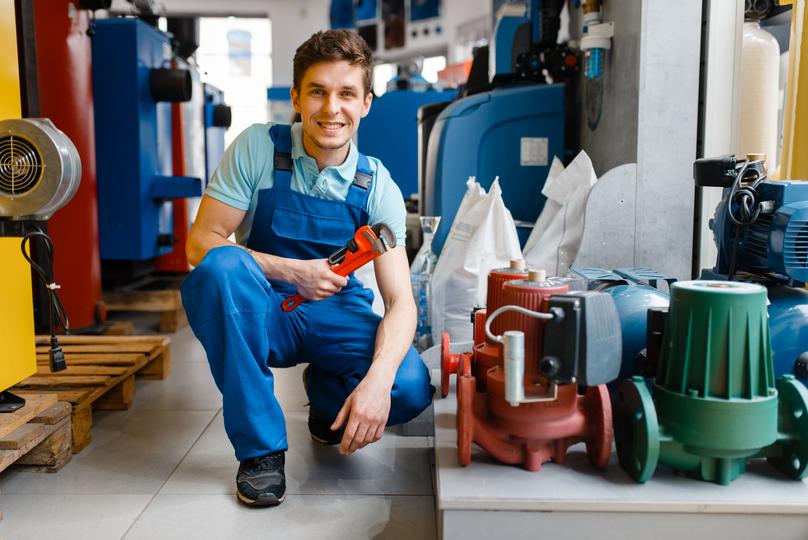
- Tell Us About Your Project
- Describe your commercial plumbing needs, whether it's for emergency service, routine maintenance, or specialized installations. Tell us about your property type, the scale of the project, and your budget.
- We Connect You With Local Experts
- We'll match you with reputable commercial plumbers in your area who specialize in your project type and have experience working on similar commercial properties.
- Compare Quotes & Choose The Best Fit
- Review quotes, compare services, and choose the commercial plumber who best meets your requirements and budget. We provide you with all the information you need to make an informed decision.
- Get Your Project Started!
- With the right commercial plumber on board, you can start your plumbing project with confidence knowing that you're in good hands.
Why Choose Plumbyng for Your Commercial Plumbing?
The smarter way to find Commercial Plumbers pros
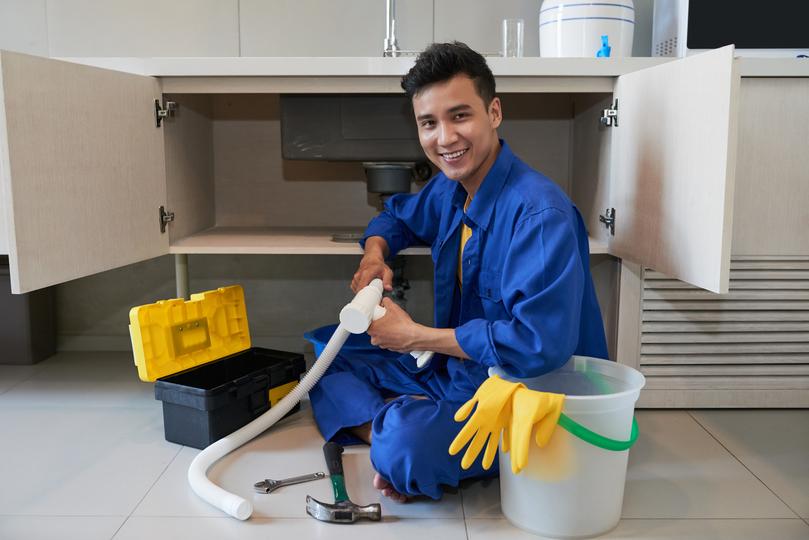
- Vetted and Experienced Professionals
- We thoroughly vet all commercial plumbers in our directory to ensure they have the necessary licenses, insurance, and experience to handle commercial plumbing projects. This rigorous process gives you confidence in the quality and reliability of the plumbers you find on Plumbyng.
- Competitive Quotes and Transparent Pricing
- Get multiple quotes from commercial plumbers in your area, enabling you to compare pricing and services. Transparent pricing ensures you understand the costs upfront, helping you make informed decisions and stay within budget.
- Save Time and Resources
- Stop wasting valuable time searching for qualified commercial plumbers. Plumbyng streamlines the process, quickly connecting you with professionals who can handle your specific plumbing needs. This saves you time and resources, allowing you to focus on other aspects of your business.
- Wide Range of Commercial Plumbing Services
- Our directory includes plumbers specializing in a full spectrum of commercial plumbing services, such as backflow prevention, grease trap cleaning, and fixture installation and repair. Whether you need routine maintenance, emergency repairs, or new plumbing installations, you'll find qualified professionals to handle the job.
- Customer Support and Satisfaction
- We're dedicated to providing exceptional customer service. Our team is available to answer your questions and resolve any issues you might encounter. We're committed to ensuring a positive experience for all users of Plumbyng.
- Free and Easy to Use
- Finding and comparing commercial plumbers is completely free. Plumbyng is designed to be user-friendly, providing a seamless experience from start to finish. Get started finding the perfect plumber for your commercial needs today!
Plumbing Solutions Tailored to Your Business
Commercial Plumbing Services

Find Plumbers
Find trusted plumbers near you. Get multiple quotes for plumbing repair, installation, and maintenance services.

24 Hour Plumber
Get fast and reliable emergency plumbing services. We respond quickly to leaks, clogs, and other plumbing emergencies.

Commercial Plumbing Services
Experienced commercial plumbers for all your business needs. We handle installation, repair, and maintenance for all types of commercial plumbing systems.

Clogged Drain Repair
Expert sewer line repair and maintenance services. We handle clogs, leaks, and other sewer line issues to keep your property functioning properly.
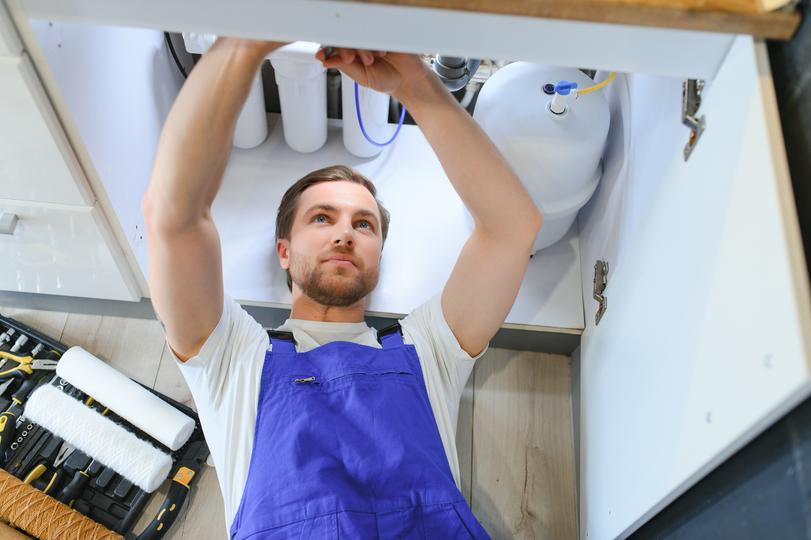
Install Tankless Water Heater
Upgrade to a tankless water heater for endless hot water and increased energy efficiency. We offer installation and maintenance services.
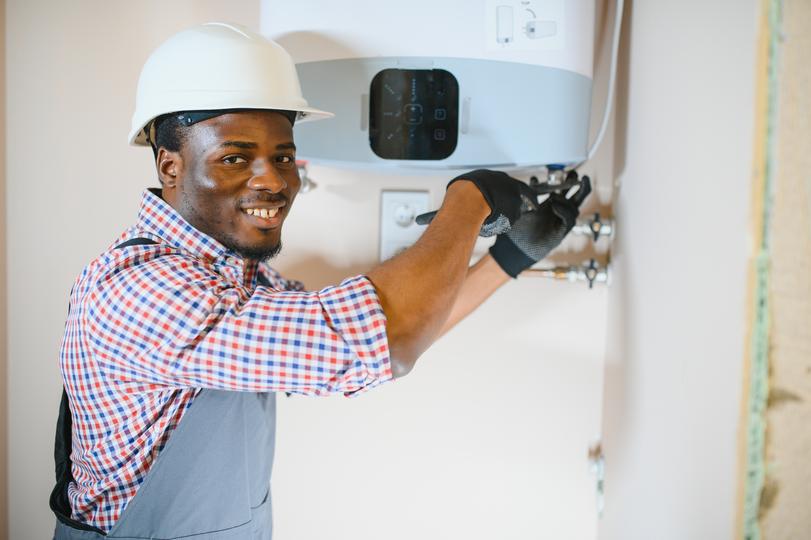
Water Heater Repair
Professional water heater repair and maintenance services for all types of water heaters. We diagnose and fix problems quickly and efficiently.
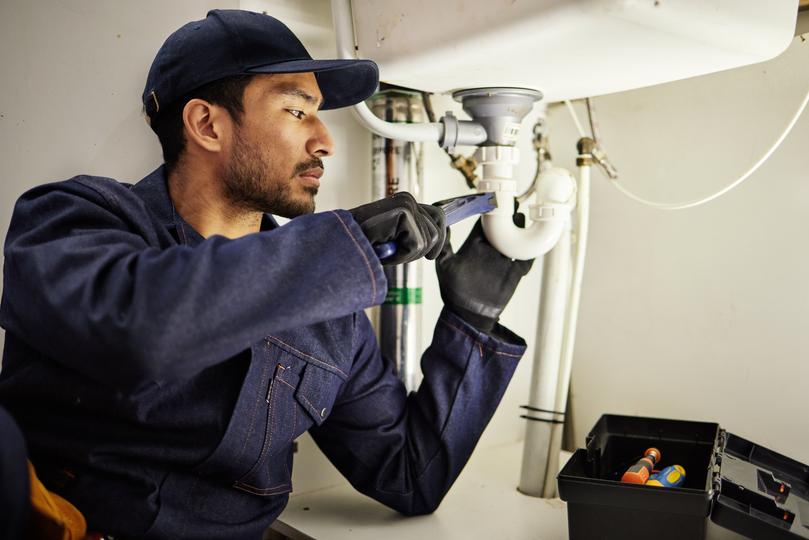
Septic System Service
Professional septic tank installation services for homes and businesses. We handle all aspects of the installation process, from planning to final inspection.
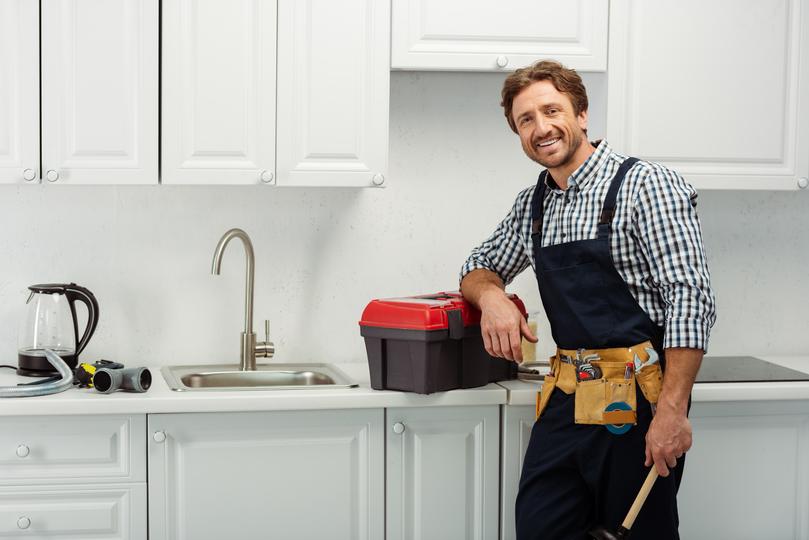
Full House Repipe
Upgrade your plumbing with our comprehensive whole house repiping services. We replace outdated pipes to improve efficiency, water pressure, and reduce leaks.

Hydro Jetting Service
Clear stubborn clogs and buildup in your drains with our powerful hydro jetting services. We use high-pressure water to effectively clean and restore your plumbi
Need a Plumber for Your Home?
Residential Plumbing Services

Plumbing Services
Find trusted plumbers near you. Get multiple quotes for plumbing repair, installation, and maintenance services.

Emergency Plumbers
Get fast and reliable emergency plumbing services. We respond quickly to leaks, clogs, and other plumbing emergencies.

Sewer Line Services
Expert sewer line repair and maintenance services. We handle clogs, leaks, and other sewer line issues to keep your property functioning properly.

Install Tankless Water Heater
Upgrade to a tankless water heater for endless hot water and increased energy efficiency. We offer installation and maintenance services.

Water Heater Maintenance
Professional water heater repair and maintenance services for all types of water heaters. We diagnose and fix problems quickly and efficiently.

Septic System Installation
Professional septic tank installation services for homes and businesses. We handle all aspects of the installation process, from planning to final inspection.

Full House Repiping
Upgrade your plumbing with our comprehensive whole house repiping services. We replace outdated pipes to improve efficiency, water pressure, and reduce leaks.

Hydro Jetting
Clear stubborn clogs and buildup in your drains with our powerful hydro jetting services. We use high-pressure water to effectively clean and restore your plumbi
Ready to Find the Perfect Commercial Plumber?
Connect with Top Commercial Plumbers on Plumbyng!
Commercial Plumbing Glossary
Backflow Preventer
Grease Trap
Water Heater
Plumbing Fixture
Plumbing System
Water Pressure
Water Line
Sewer Line
Drain Cleaning
Pipe Repair
Pipe Fitting
Repiping
Fixture Installation
Water Meter
Cross-Connection Control
Commercial Plumbing FAQs
How much does commercial plumbing cost?
How to find a commercial plumber near me?
What are the most common commercial plumbing problems?
What should I do if I have a commercial plumbing emergency?
What types of commercial plumbing services are available?
- New construction plumbing
- Renovations and upgrades
- Repair and maintenance
- Emergency service
- Fixture installation and repair
- Drain cleaning and sewer repair
- Backflow prevention
- Grease trap maintenance
- Water heater repair and replacement
What questions should I ask a commercial plumber?
- What experience do they have with similar commercial projects?
- Are they licensed and insured?
- What is their process for handling emergencies?
- Do they provide detailed written estimates?
- What warranties do they offer?
- What is their payment policy?
- Can they provide references from past clients?
How much does commercial plumbing repair cost?
How to choose a commercial plumber?
- Extensive commercial experience
- Necessary licenses and insurance
- Positive reviews and testimonials
- Clear communication and professionalism
- Detailed written estimates and transparent pricing
How to prevent commercial plumbing problems?
- Regular inspections of plumbing systems.
- Scheduled maintenance for water heaters and other equipment.
- Prompt attention to leaks and drips.
- Proper disposal of waste to prevent clogs.
- Regular cleaning of grease traps.
- Testing backflow preventers.
What are the benefits of regular commercial plumbing maintenance?
- Reduced repair costs: Catching small problems before they escalate saves money.
- Extended equipment life: Proper maintenance increases the lifespan of plumbing systems.
- Improved efficiency: Well-maintained systems operate more efficiently.
- Avoids costly downtime: Prevents emergencies that disrupt business operations.
- Ensures compliance: Meeting local regulations.
How often should I have my commercial plumbing inspected?
What is a backflow preventer test?
How much does commercial plumbing installation cost?
What is a commercial plumbing permit?
What is a grease trap, and why is it important for my business?
How often should grease traps be cleaned?
What are the signs of a plumbing leak in my commercial building?
- Water stains on ceilings or walls.
- Dripping sounds from pipes or fixtures.
- Musty or damp odors.
- Higher than usual water bills.
- Mold or mildew growth near pipes.
- Soft or spongy areas on floors or walls.
What causes low water pressure in commercial buildings?
- Clogged pipes: Buildup of debris or mineral deposits restricting water flow.
- Leaks: Leaks anywhere in the system reduce pressure.
- Water main issues: Problems with the municipal water supply.
- Improper pipe sizing: Pipes may not be large enough for water demand.
- Closed valves: A closed valve can restrict flow.
How can I improve water efficiency in my commercial building?
- Installing low-flow fixtures (toilets, faucets, showerheads).
- Regularly checking for and fixing leaks.
- Implementing water conservation measures in your business practices.
- Using water-efficient appliances and equipment.
What are the benefits of hiring a licensed commercial plumber?
- Expertise: Specialized knowledge and experience for commercial plumbing.
- Insurance: Protection against accidents or damages.
- Compliance: Ensuring work meets local regulations.
- Quality: Higher standards of workmanship.
- Warranty: Often come with warranties on their work.
What are the signs of a backflow problem?
- Discolored water.
- Unusual tastes or odors in the water.
- Water flowing backward from a fixture.
- Low water pressure in one area of the building.
What is a cross-connection?
How often should I test my backflow preventer?
What are the penalties for not having proper backflow prevention?
How much does commercial plumbing cost?
How to find a commercial plumber near me?
What are the most common commercial plumbing problems?
What should I do if I have a commercial plumbing emergency?
What types of commercial plumbing services are available?
- New construction plumbing
- Renovations and upgrades
- Repair and maintenance
- Emergency service
- Fixture installation and repair
- Drain cleaning and sewer repair
- Backflow prevention
- Grease trap maintenance
- Water heater repair and replacement
What questions should I ask a commercial plumber?
- What experience do they have with similar commercial projects?
- Are they licensed and insured?
- What is their process for handling emergencies?
- Do they provide detailed written estimates?
- What warranties do they offer?
- What is their payment policy?
- Can they provide references from past clients?
How much does commercial plumbing repair cost?
How to choose a commercial plumber?
- Extensive commercial experience
- Necessary licenses and insurance
- Positive reviews and testimonials
- Clear communication and professionalism
- Detailed written estimates and transparent pricing
How to prevent commercial plumbing problems?
- Regular inspections of plumbing systems.
- Scheduled maintenance for water heaters and other equipment.
- Prompt attention to leaks and drips.
- Proper disposal of waste to prevent clogs.
- Regular cleaning of grease traps.
- Testing backflow preventers.
What are the benefits of regular commercial plumbing maintenance?
- Reduced repair costs: Catching small problems before they escalate saves money.
- Extended equipment life: Proper maintenance increases the lifespan of plumbing systems.
- Improved efficiency: Well-maintained systems operate more efficiently.
- Avoids costly downtime: Prevents emergencies that disrupt business operations.
- Ensures compliance: Meeting local regulations.
How often should I have my commercial plumbing inspected?
What is a backflow preventer test?
How much does commercial plumbing installation cost?
What is a commercial plumbing permit?
What is a grease trap, and why is it important for my business?
How often should grease traps be cleaned?
What are the signs of a plumbing leak in my commercial building?
- Water stains on ceilings or walls.
- Dripping sounds from pipes or fixtures.
- Musty or damp odors.
- Higher than usual water bills.
- Mold or mildew growth near pipes.
- Soft or spongy areas on floors or walls.
What causes low water pressure in commercial buildings?
- Clogged pipes: Buildup of debris or mineral deposits restricting water flow.
- Leaks: Leaks anywhere in the system reduce pressure.
- Water main issues: Problems with the municipal water supply.
- Improper pipe sizing: Pipes may not be large enough for water demand.
- Closed valves: A closed valve can restrict flow.
How can I improve water efficiency in my commercial building?
- Installing low-flow fixtures (toilets, faucets, showerheads).
- Regularly checking for and fixing leaks.
- Implementing water conservation measures in your business practices.
- Using water-efficient appliances and equipment.
What are the benefits of hiring a licensed commercial plumber?
- Expertise: Specialized knowledge and experience for commercial plumbing.
- Insurance: Protection against accidents or damages.
- Compliance: Ensuring work meets local regulations.
- Quality: Higher standards of workmanship.
- Warranty: Often come with warranties on their work.
What are the signs of a backflow problem?
- Discolored water.
- Unusual tastes or odors in the water.
- Water flowing backward from a fixture.
- Low water pressure in one area of the building.
